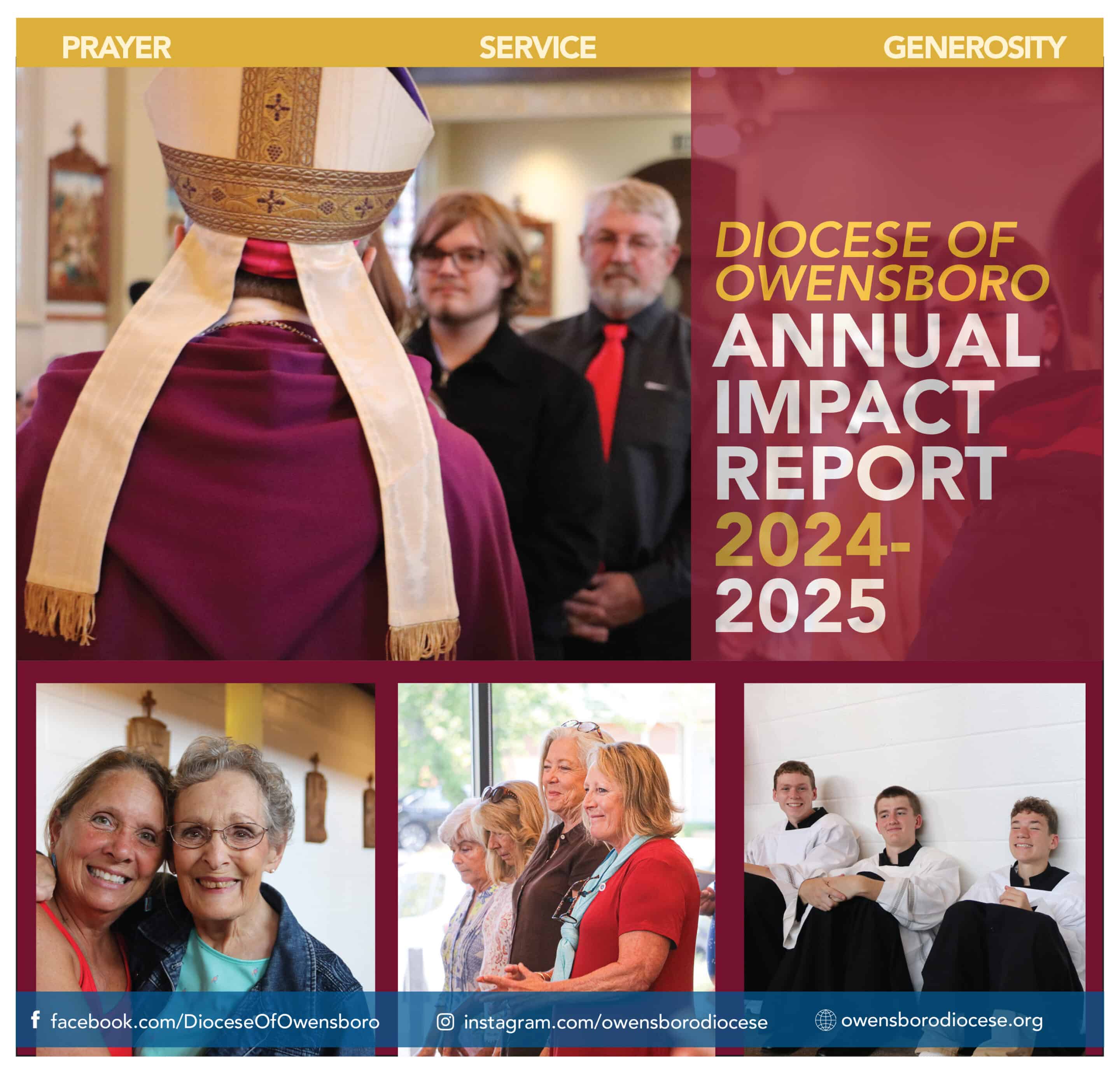
Holy Cross Fr. Theodore Hesburgh, then president of the University of Notre Dame, second from left, joins hands with the Rev. Dr. Martin Luther King Jr., the Rev. Edgar Chandler and Msgr. Robert J. Hagarty of Chicago, far right, in this 1964 file photo. OSV NEWS PHOTO/COURTESY UNIVERSITY OF NOTRE DAME
Catholics and the legacy of Dr. Martin Luther King, Jr.
BY DCN. JAY W. VANHOOSIER, OFFICE OF FAITH FORMATION
Dr. Martin Luther King, Jr., honored annually on the third Monday of January in the United States, remains one of the most influential leaders of the 20th-century civil rights movement. His teachings and leadership resonate deeply with principles of Catholic Social Teaching (CST), bridging denominational boundaries. CST emphasizes social justice through human dignity, solidarity, and care for the marginalized – which were values central to King’s mission of equality, nonviolence, and justice. His legacy provides Catholics with a powerful example of living out their faith in the world.
A foundational principle of CST is human dignity, affirming that every person, made in the image and likeness of God, has inherent worth. King championed this belief, envisioning a racially integrated society where segregation and discrimination would be abolished. His famous “I Have a Dream” speech calls for individuals to be judged by their character, not their race, reflecting his conviction that racism undermines human dignity. Rooted in the Christian belief in the imago Dei, King’s vision aligns with CST’s call to respect the value of every person, inspiring Catholics to work for a society that affirms the dignity of all.
The principle of solidarity, another cornerstone of CST, aligns with King’s commitment to civil rights. Catholics hold that all humanity is interconnected, sharing a collective responsibility for justice and peace. Solidarity requires recognizing that the suffering of one person impacts everyone. King’s vision of a “beloved community” emphasized the importance of people from all backgrounds uniting for the common good. His famous declaration, “Injustice anywhere is a threat to justice everywhere,” reflects CST’s teaching that true justice must encompass all members of society. For Catholics, this means addressing systemic issues such as racism, poverty, and violence as acts of solidarity and discipleship.
CST’s preferential option for the poor and vulnerable also finds resonance in King’s life work. Catholics are called to prioritize the needs of the marginalized, a principle reflected in King’s advocacy for economic justice. His “Poor People’s Campaign” extended beyond civil rights, seeking to address systemic economic disparities. King’s focus on uplifting the socially and economically oppressed, particularly African Americans, mirrors the CST commitment to serving the vulnerable. For Catholics, this principle entails not only alleviating poverty but addressing the systems that perpetuate inequality.
Baptism, for Catholics, signifies both an initiation into the Church and a call to discipleship—a responsibility to work toward building God’s kingdom through mercy, compassion, and justice. King’s leadership against inequality offers an inspiring model for how Catholics can fulfill this call. Like King, Catholics are called to combat injustice in their communities, embodying the values of justice and compassion in the world.
Dr. Martin Luther King, Jr.’s life and teachings closely intersect with the principles of Catholic Social Teaching. His dedication to nonviolence, human dignity, and justice serves as a model for Catholics striving to live out their faith in tangible ways. By engaging in social justice efforts, Catholics not only honor King’s legacy but also fulfill their baptismal call to work for a more just and compassionate society.
Dcn. Jay W. VanHoosier is the Director of Faith Formation for the Diocese of Owensboro. For more information visit owensborodiocese.org/faith-formation, email [email protected] or call (270) 852-8324.
Originally printed in the January 2025 issue of The Western Kentucky Catholic.

